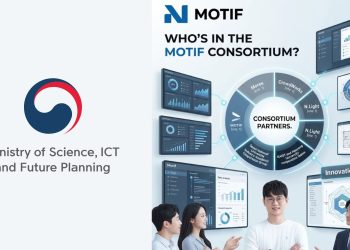The Ministry of SMEs and Startups successfully launched this year’s biggest startup festival in South Korea, the COMEUP 2020, from November 19-21. The three-day event aims to connect startups and business ventures under the theme “Meet the Future – Post Pandemic.”
The last day of the event featured the future of industries such as entertainment, especially K-Pop, online education, e-commerce, and retail (offline) post-COVID-19 era.
The Future of Retail: A Tale of Blending Realities
The pandemic created a global market turmoil due to the COVID-19 pandemic, especially in retail, where large companies dominate the industry with smaller retailers struggling to operate. The highly competitive market requires enough experience to stand out and drive sales. In a keynote speech during the third day of COMEUP 2020, RJ Pittman, CEO of Matterport, discussed the future of retail and the advantages of digital technologies such as 3D and VR/AR.

“To thrive, not just to survive, we have to reimagine the entire retail experience.”
The digital transformation of the built world would fundamentally change the way people interact with buildings, products, and the physical world around them.
RJ introduced Matterport, a spatial data company that focuses on digitizing and indexing the built environment. The firm creates tours using three-dimensional spaces and virtual reality to give the best experience. Matterport could provide virtual tours of retail stores where customers could shop freely from the safety of their homes. Customers could pick items as if they would in an actual store and view details of the items.
Matterport helps companies grow by digitizing the experiences of customers visiting their business locations. The company turns buildings and spaces into immersive experiences. Matterport’s technology also allows entrepreneurs to digitalize their businesses.
Pittman also introduced five advantages to blending real and virtual commerce into businesses:
- Transport people to stores instantly
- Add E-commerce to blend experience and sales
- Enhance storytelling to elevate and differentiate brands
- Go beyond local visitors and attract a global audience
- Businesses could easily virtualize their locations by themselves
Panel Discussion: Paradigm Shift in Offline Retail Industry
Following the speech on the retail industry’s future, Kyung Min Kim moderated the panel”Paradigm Shift in Offline Retail Industry.”

Kyung Min Kim currently holds a position at Seoul National University Graduate School of Environmental Studies. His research area includes “Analyzing the real estate market/urban dynamics with big data” and “Providing affordable housing through non-profit private developers.” He developed “Shareone,” a sharehouse that would provide welfare housing for the youth.
The session included Tae Hee Lim, CEO of IGIS Investment Partners, Sue Hyun Jung, the CEO & the Founder of NSPACE, and Jay Choi, the founder, and CEO of Button Soup. The talk revolved around how the pandemic shaped the way retailers operate their business and facilities. They discussed the retail industry’s shift from offline to online, such as the surge in online shopping and deliveries.
Panel Discussion: Digital Transformation of Offline Businesses
Hye Won Kang headed the next discussion on offline retail industry, which took on the digital transformation of offline businesses. She is the COO and EVP of Acceleration Business Unit of Wecook, a leading shared kitchen and F&B business platform provider in Korea.

The panelists included Daniel Kyeong, CEO/Co-Founder of AID Korea, which offers AI-based livestock healthcare solutions, Jae Hyun Kim, CEO/Founder of fresh food delivery platform Onul-Hoi, and Kieran Park, CEO of GymT.
Lockdowns and social distancing measures created opportunities for startups and companies to digitalize offline businesses and services. to capitalize on the growth of connected device usage. Digitization would also cater to the needs of consumers in a more personal way affecting their lifestyles.







